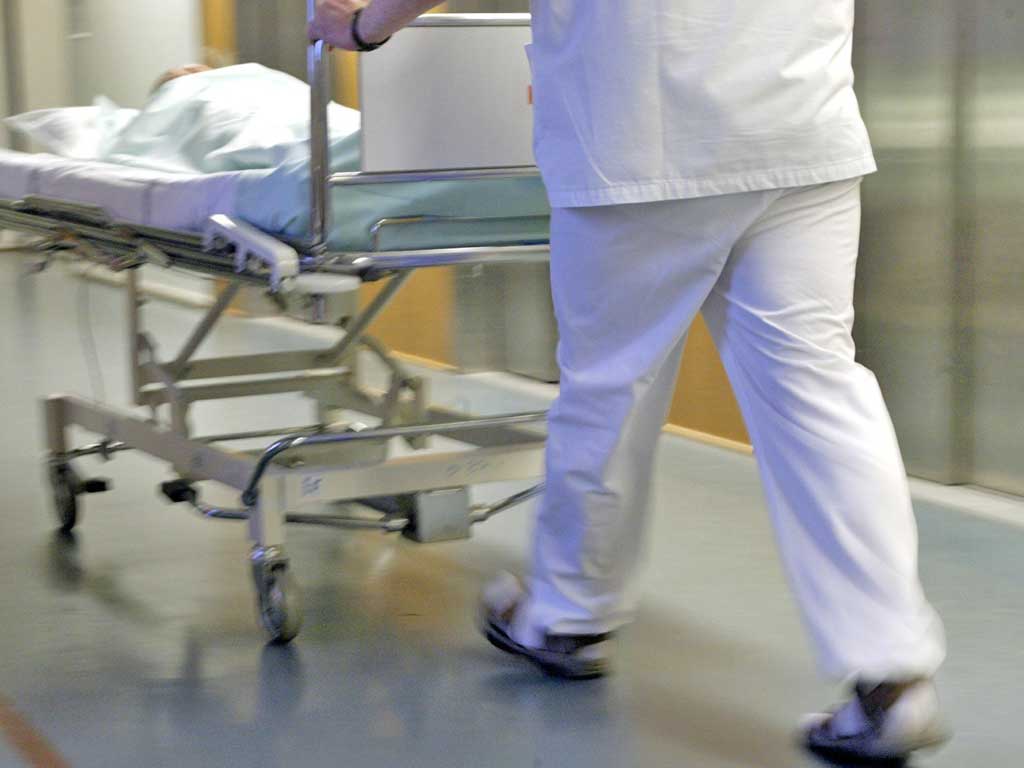Consultants told to supervise new doctors to end NHS 'killing season'

It is known as "Black Wednesday" – the start of the "killing season" in the NHS, when a fresh crop of medical graduates starts on the wards.
The first Wednesday in August marks the arrival of 6,000 newly qualified doctors, quaking in their crisp white coats. As they take responsibility for patients for the first time, research shows that death rates rise by an average of six per cent. August is the NHS's cruellest month.
Now the Academy of Medical Royal Colleges (AMRC), representing the 20 medical institutions responsible for maintaining standards in the NHS, has said enough is enough. It has called for more consultants to be on duty and a reduction in routine surgery to allow senior doctors to supervise trainees more closely during the influx.
Rotas should be "more flexibly and intelligently designed" so more experienced doctors are on call for the first few weeks and trainees should be given "high-quality clinical induction" with an emphasis on patient safety.
The proposals have been endorsed by Dame Sally Davies, chief medical officer for England, and her three counterparts in Scotland, Wales and Northern Ireland.
Alastair Henderson, chief executive of the AMRC, said the six per cent increase in death rates in August was a serious concern. "The problem has been been known about for a long time, it is an increasing anxiety and it isn't acceptable," he said. "There are practical complications with the changeover – if you are playing musical chairs everyone has to move or there won't be chairs to move to. But that doesn't mean there can't be a way of supervising and managing it safely. We are calling for better consultant cover to ensure there is absolutely proper supervision during this period."
The AMRC is exploring staggering the changeover, which affects 50,000 doctors in training who move to new posts twice a year in August and February. Delaying the changeover for the more experienced doctors by two to four weeks would "greatly increase stability", the AMRC says.
For the first time this August, new doctors will spend four days shadowing the jobs into which they are moving.
In letters to NHS trusts announcing the plan, NHS medical director Sir Bruce Keogh acknowledged that the changeover "puts patients at risk" and junior doctors under stress.
Mark Porter, chair of the British Medical Association's consultants committee, backed the proposals for more consultant cover in August but said NHS trusts must accommodate those who wanted to take holidays at that time and not operate a crude, first-come, first-served system.
He said there was "disturbing evidence" that patients got a worse service during the junior doctor changeover in August, but denied deaths were higher. "We no longer get patients deteriorating because they are now on observation charts with mandatory checks which trigger automatic calls to the critical care outreach team."
Marion Matheson, co-chair of the BMA's medical student committee, said the change was overdue. She told Hospital Doctor: "It's a bit disappointing they aren't already in place. If the recommendations came in it would be fantastic but it is questionable whether they are attainable."
Bill McMillan, head of medical pay and workforce at NHS Employers, said: "We aim to meet with the Academy soon to explore whether there are issues around terms and conditions, as well as how future developments will support patient care while being affordable and practical for employers."
In numbers: a critical month
6 per cent: Rise in deaths when newly qualified doctors start in August
6: Number of extra deaths within a week among patients admitted on first Wednesday in August (compared with those admitted on last Wednesday in July)
28 per cent: Increased risk of "undesirable events" immediately after the changeover
4 months: the length of time after changeover till the risk level returns to normal
50,000: Number of doctors who start work or swap jobs as part of their training in August
Subscribe to Independent Premium to bookmark this article
Want to bookmark your favourite articles and stories to read or reference later? Start your Independent Premium subscription today.

Join our commenting forum
Join thought-provoking conversations, follow other Independent readers and see their replies